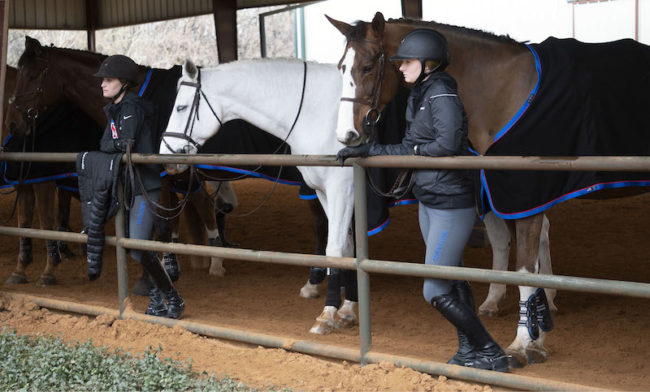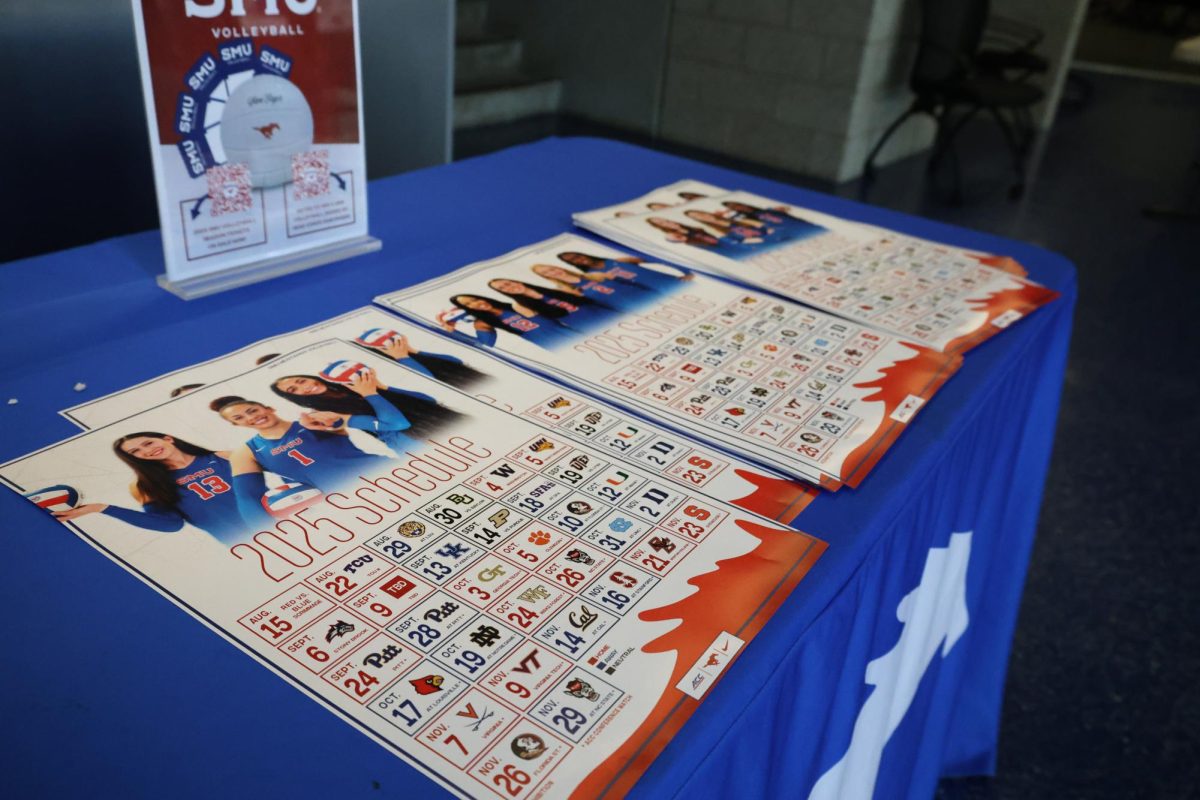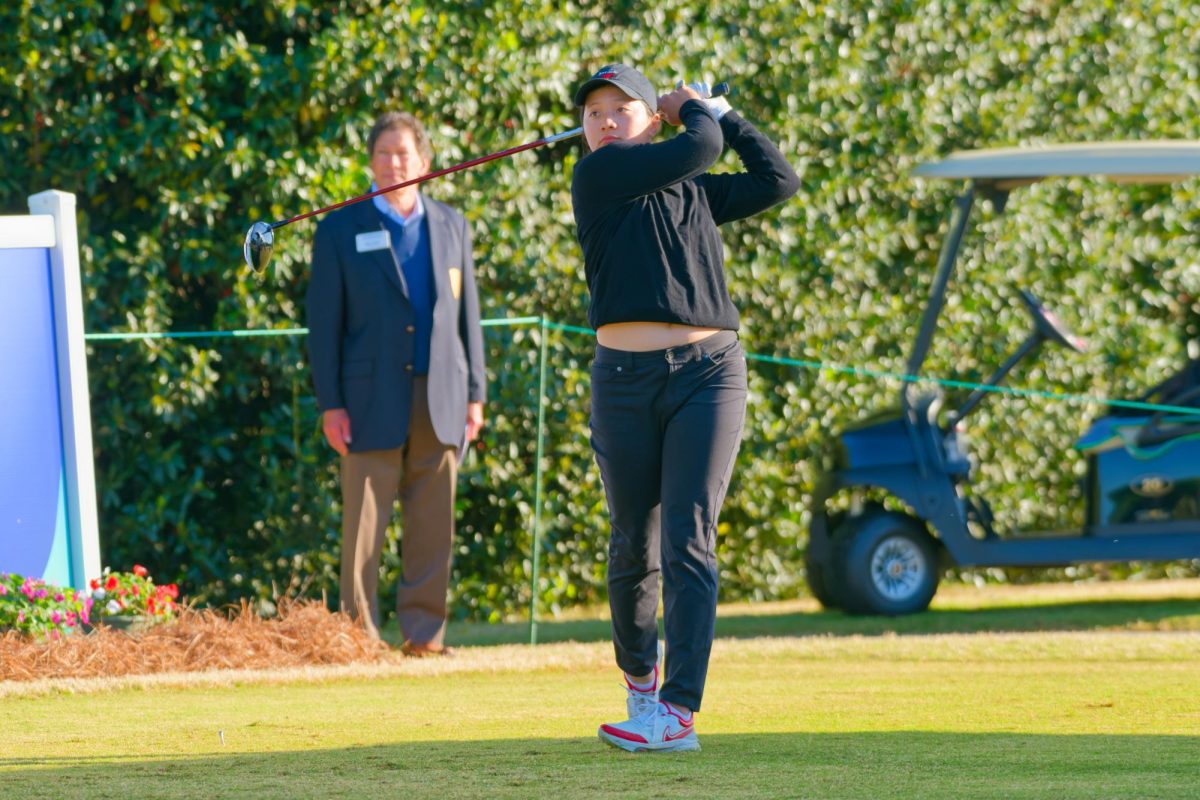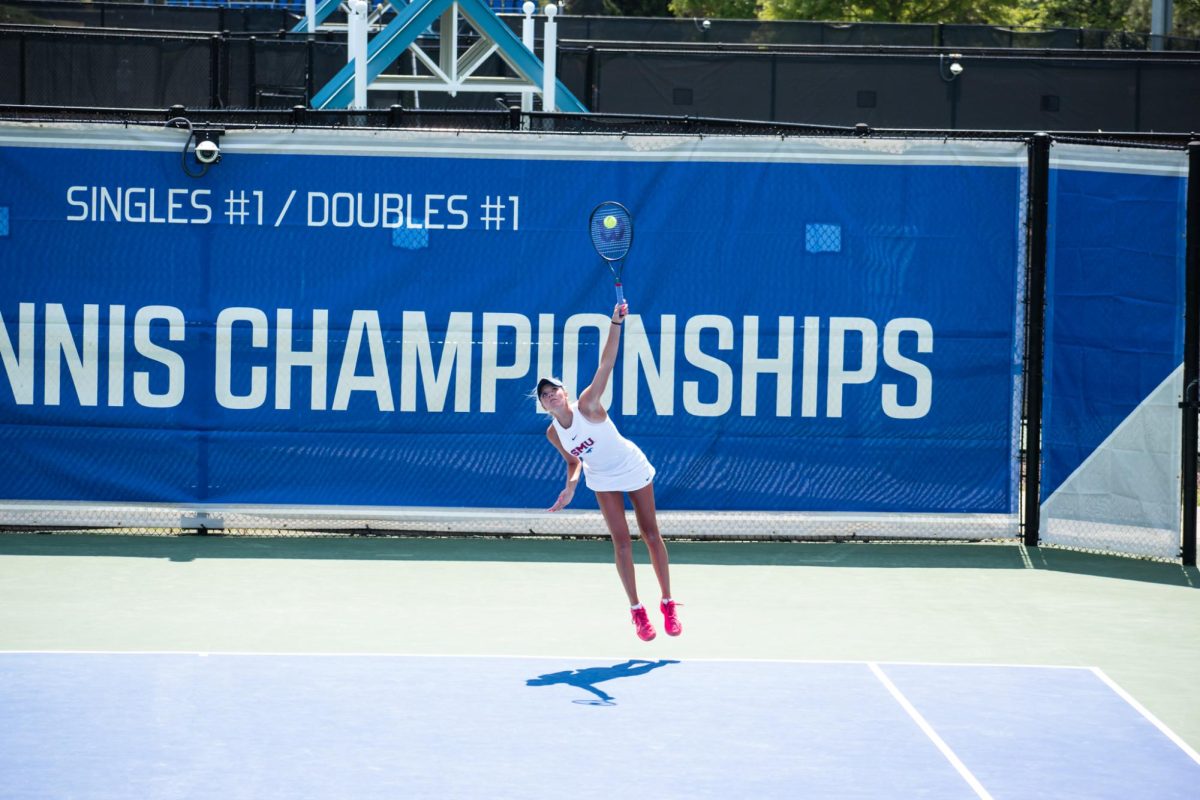What does the word ‘equestrian’ mean?
“I would start by saying that equestrian is a sport that involves horses and people. There are different types of venues through equestrian, like for our team here at SMU, we have the hunter seat team and the western team,” Amber Henter, who has competed at the national, collegiate, and professional levels before taking on her current role as Assistant Hunter Seat Coach for SMU, said. “Usually, you separate the disciplines, and when you’re growing up riding, you focus on one or the other. It’s a small world, but there is a lot to it; equestrian is a pretty broad term. There is a lot that goes on behind that, and you can get involved in a lot of different things to do with equestrian that isn’t just hunter seat or western.”
What is the difference between western and hunter seat?
The western team competes in reining and horsemanship, while the hunter seat team focuses on fences and flat. Kirsten Ostling, a sophomore Hunter Seat, explained that “reigning is when [the horse] stops, slides, and spins, and horsemanship is when they go around looking really pretty; it is meant to be very precise. Then, there’s fences where you’re jumping, and flat, which is pretty much like horsemanship, but for English.”
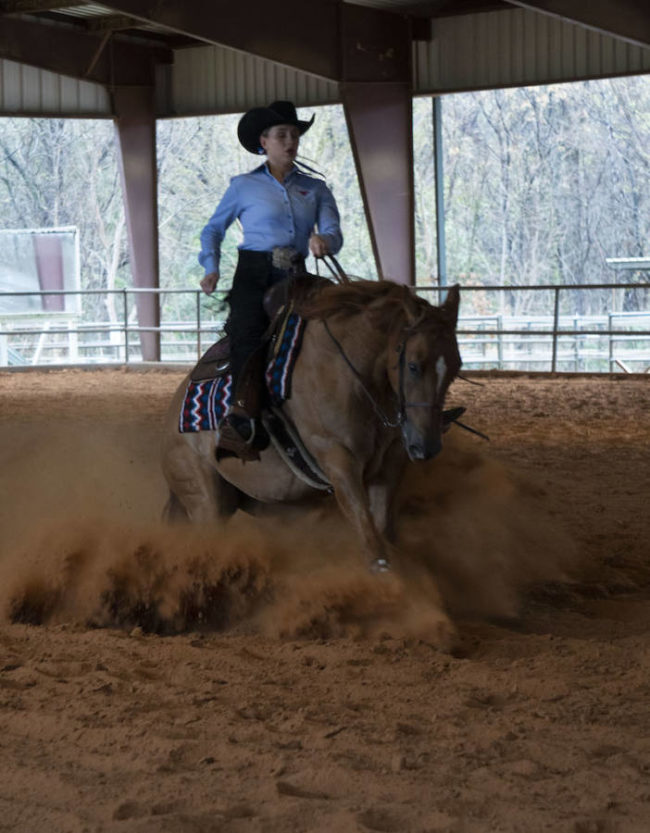
How do riders prepare?
“We make sure we know our patterns for the upcoming competitions, then in between we work on things to help our position, our style, get the horses where they need to be, and just be as prepared as possible,” Henter said.
The coaches are given the patterns and jumps two weeks before each competition, and the team practices them in the arenas in Dallas.
“When we go to away competitions, we ride the competitor’s horses, which puts us at a disadvantage. It’s very important to switch things up on a daily basis, keep everyone on their toes, and communicate things that we need to work on,” Henter said.
What happens during competition?
During competitions, riders are judged based on how well they ride and connect with the horse, in addition to how well they are able to get the horse to perform.
“The judges look for precision and your position. Some of it is like a beauty pageant where you have to look really pretty on the horse, but also you’re not fighting with the horse; you’re working with them, because it is a team sport with your horse as well,” Ostling said.
However, the judge’s expectations vary based on each category. For example, in regards to flat, Ostling explained that “the goal is to be very accurate and smooth.”
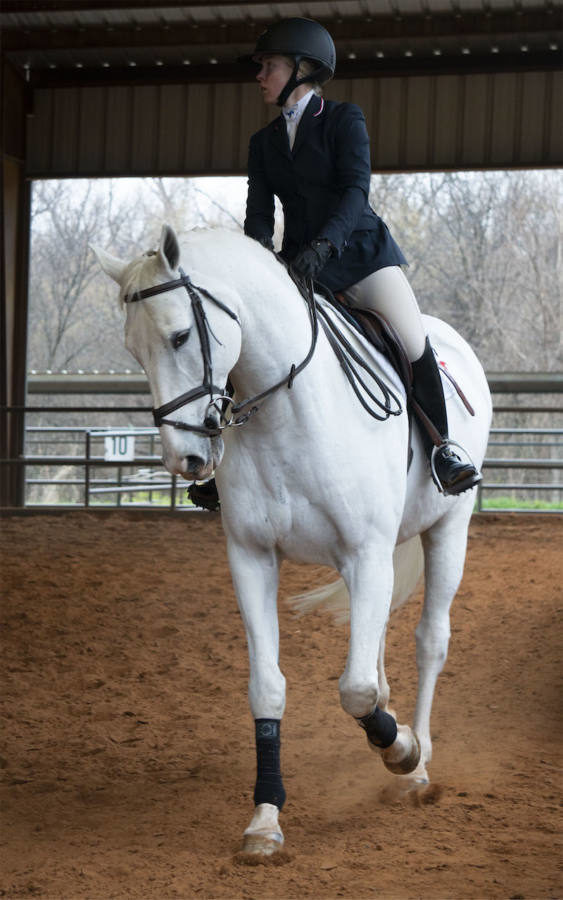
What skills does one need to succeed in this sport?
“I would definitely say dedication, because riding horses is kind of unpredictable,” said Ashley Mauney, a senior western competitor at SMU. “It’s not another sport where you can just be done and put the ball down. It’s an animal so it does depend how it’s feeling for how they’re going to perform, that is a key thing, and then passion. I think if you’re passionate about something that you enjoy, then you’ll be better at it.”
Want to get involved?
“Reach out and talk to people, that’s really important,” Mauney said. “Experience is really helpful, but there are definitely ways to become involved even if you’re not experienced. Talk to people, teammates, and coaches if you’re interested.”



